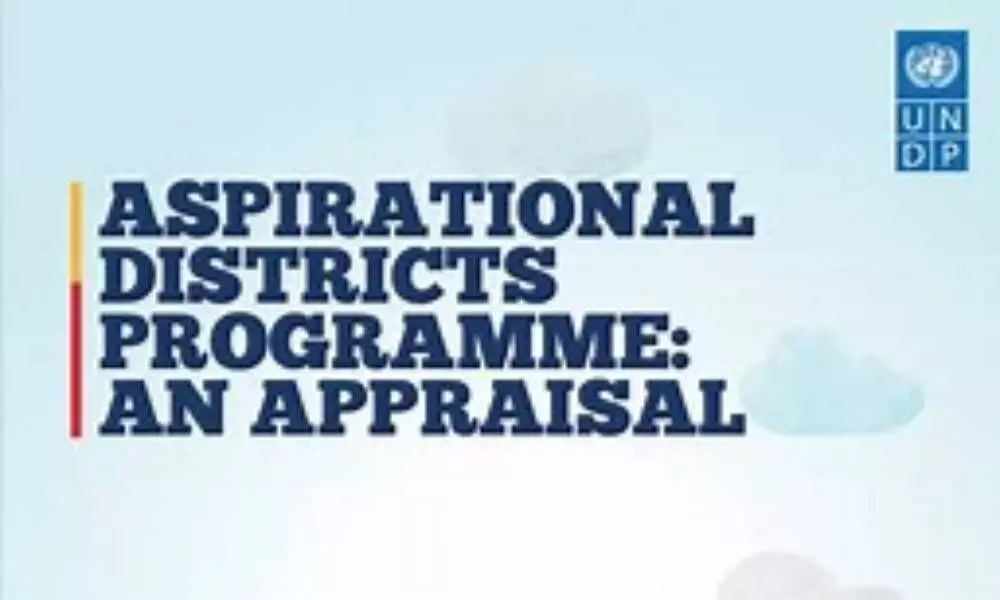UNDP India releases an appraisal report on the ADP spirational Districts Programme
image for illustrative purpose

Mumbai, Jun 12 United Nations Development Programme (UNDP) India released an independent appraisal report on the Aspirational Districts Programme (ADP) today. This report captures the progress of the flagship initiative and recommendations for further improvements. The report was handed over by Shoko Noda, Resident Representative, UNDP India to Dr Rajiv Kumar, Vice Chairman and Amitabh Kant, CEO, NITI Aayog.
The report, which includes a comparison of Aspirational Districts (ADs) with non-aspirational districts, indicates that ADs have outperformed non-ADs by substantial margins, given the increased focus through monitoring real-time data, convergence across government programmes and schemes, and receiving the benefits of the Aspirational Districts Programme. Faster development in the ADs was all the more creditable given the fact that to start with, most of them were difficult and remotely located backward districts.
This report also underlines the strengths of state and local governments to bring all partners and stakeholders to collaborate to achieve the goals and targets. It clearly shows evidence of how localizing the global SDGs and monitoring them closely have helped the local governments to improve people's lives.
This programme has seen the commitment from the highest political leadership in the country since its inception, to bring about rapid progress, especially in the under-developed pockets. The ADP was launched by the India's Prime Minister, Narendra Modi in 2018, with the objective of expediting the transformation of 112 most backward districts across 28 states through convergence across government departments.
Keeping in mind, the need to accelerate progress in these backward districts, NITI Aayog has been convening regular monitoring to encourage District Collectors to prioritize and deliver their best on the ground.
For developing this report the UNDP Team interviewed various stakeholders including District Magistrates, Central Prabhari Officers, District Fellows and other Development Partners. Most of them credited "convergence" as the crucial factor for the improved performance of their districts and underlined how this initiative encouraged departments to move away from working in silos towards collaborative planning and governance to achieve the set targets of the programme.
NITI Aayog has termed this report very useful as it clearly shows that the template of Aspirational Districts Programme, which has the innovative features of careful selection of performance indicators, monitoring the progress on a dashboard and healthy competition among districts, can be used for accelerating development in backward regions in India and in other parts of the world.
"As we publish this appraisal of the Aspirational Districts Programme, the world continues to grapple with the devastating consequences of the COVID-19 pandemic that have reversed some of the progress we had made on the SDGs so far. So, if we have to make up for the lost time and the lost opportunities, we need to further strengthen our focus on the most backward areas and communities. This is where the ADP can have the biggest impact by localizing the global goals, translating and delivering them as integrated programmes and services that work to improve people's lives, particularly for those at risk of falling behind. UNDP is committed and proud to partner with the Government of India, NITI Aayog and other development partners for this great initiative to ensure inclusive growth for all" said Shoko Noda, Resident Representative, UNDP India.

